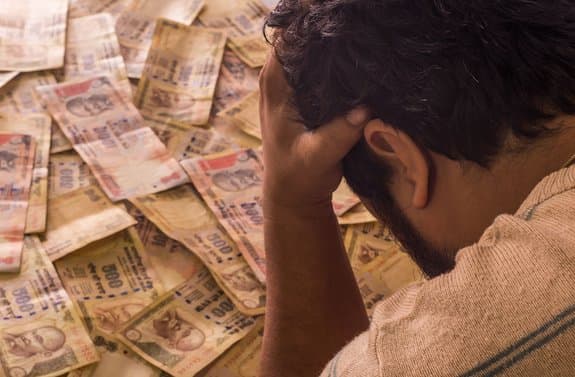
The 6th pillar of India’s economy
On May 12th, 2020, Prime Minister Narendra Modi gave a speech on what he calls the "five pillars" to make India self-reliant and, apparently, digital. Yet, the lifeline of India's economy is coping with the crisis thanks to a sixth, uncredited pillar: cash.
According to the RBI, "cash in circulation has risen by 3.6% to ₹25.35 trillion (over US$330 billion) in the first month of this fiscal year". This is reportedly due to the millions of kiranas (mom-and-pop stores) requesting customers pay with cash only as a temporary lockdown measure. The collective influence of these traditional chains cannot be dismissed, as their payments policy impacts both suppliers and consumers in one of the world's largest retail markets.
“During the COVID-19 crisis, Kirana stores have stood tall and they ensured that every household gets their daily essentials. They were and are the lifeline of consumers in India,”
The subcontinent's retail market is worth approximately $700 billion and is predicted to increase to $1 trillion by 2025. Staying open during lockdown and seeing 9 in 10 transactions across India, it is the reliable Kiranas that are essential in helping the country cope with quarantine culture. Their choice to go cash-only contradicts the government's plans for a less cash society, but perhaps the two don't need to be mutually exclusive.
While pushing for digitizing kiranas, the CEO of Metro Cash & Carry argued a case for safeguarding cash simultaneously, saying, "the future is not a question of offline versus online, but how online can complement offline as both will continue to thrive in different ways".
Excerpt from Forbes India
"Today, there is a lot of debate on the merits and demerits of ecommerce in India. The cost of customer acquisition for online retailers is soaring, leading to a huge cash burn rate and mounting losses. The need of the hour is to safeguard the interest of small kiranas and micro, small and medium enterprises against any regulatory violation and predatory pricing that is affecting their business and livelihood."
In a more recent article, the CEO of Yes Bank explained the shift back to cash across India on the consumer level: “the spending is only for taking care of the kitchen and is taking place at neighborhood shops which have always been accepting cash. So, basically cash becomes more convenient at this point of time," (Financial Express).
"Half of his suppliers want cash, the rest want digital and, in this dilemma, the retailer wants only cash from his customers. No one says "No" to cash."
While India has a relatively high bank account ownership, it is home to more than 10% of the global unbanked population because of its size. Unfortunately for Modi's plans and the digital payments industry targeting this market, if kiranas go cash only, suppliers and consumers follow.
Excerpt from LiveMint (May 11, 2020)
"A look at the digital payments data for April paints a dismal picture as all but Aadhaar-enabled payments system (AePS) have seen volumes crash. Take the case of national electronic fund transfer (NEFT) where both inward and outward remittances have shrunk 33% between March and April to 175.9 million.
Volumes on immediate payment service (IMPS) have also declined 44% in the same period to 122.47 million transactions. Unified Payments Interface (UPI), used by some merchants, have seen a dip in volumes to 999.57 million in April from 1.24 billion in the preceding month.
Meanwhile, the cash in circulation in the economy has risen by 3.6% to ₹25.35 trillion in the first month of this fiscal year, showed RBI data."
Cash was already king in India, where it is used in 90% of transactions and is 100% relied on by 190 million unbanked citizens on a good day. The "resurgence of cash," during a lockdown shouldn't be overlooked as it sheds light on the important role that of cash holds as a public good, especially during a crisis. From supplier to customer level, it is accepted universally, and yes, safe to use in times of corona.
List of references
- NDTV In Speech, PM Modi Lists "5 Pillars Of India's Self-Reliance" (May 12, 2020)
- Money Control PM Modi speech on coronavirus: Here are the 5 pillars that will help make India self-reliant (May 12, 2020)
- LiveMint ...but cash continues to be king (May 11, 2020)
- FinancialExpress AePS surge shows cash is king again, for now ( May 11, 2020)
- LiveMint Lockdown leads to resurgence of cash as digital payments decline (May 10, 2020)
- The Hindu Times Kirana stores turn lifeline during lockdown (May 6, 2020)
- Forbes India How kiranas have weathered the age of ecommerce (Jan 6, 2020)
- Medium The Power of Kirana Stores : Transforming Indian Retail (Jun 2, 2019)
- Times Of India India has second-largest unbanked population in the world (Jun 15, 2018)



